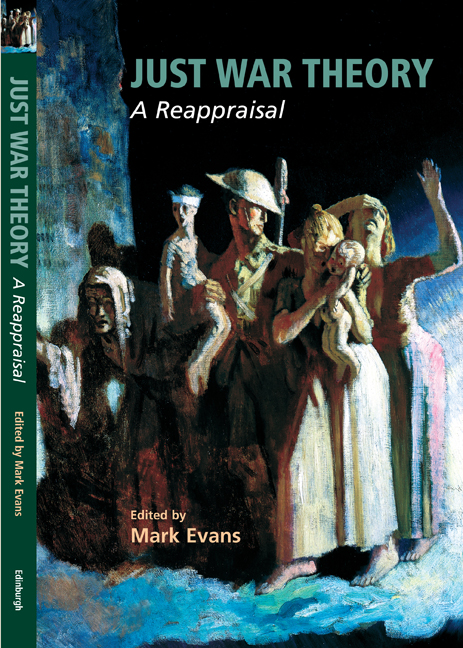Book contents
- Frontmatter
- Contents
- Notes on the Contributors
- Preface and Acknowledgements
- Introduction Moral Theory and the Idea of a Just War
- JUST CAUSE
- 1 The Justice of Preemption and Preventive War Doctrines
- 2 Punitive Intervention: Enforcing Justice or Generating Conflict?
- 3 In Humanity’s Name: Democracy and the Right to Wage War
- JUSTICE IN THE CONDUCT OF WAR
- 4 The Concept of Proportionality: Old Questions and New Ambiguities
- 5 Just War? Just Children?
- 6 Is There a Supreme Emergency Exemption?
- JUSTICE AND THE END OF WAR
- 7 Security Beyond the State: Cosmopolitanism, Peace and the Role of Just War Theory
- 8 Forgiveness and Reconciliation in Jus Post Bellum
- CONCLUSION
- In Defence of Just War Theory
- Bibliography
- Index
In Defence of Just War Theory
Published online by Cambridge University Press: 03 October 2020
- Frontmatter
- Contents
- Notes on the Contributors
- Preface and Acknowledgements
- Introduction Moral Theory and the Idea of a Just War
- JUST CAUSE
- 1 The Justice of Preemption and Preventive War Doctrines
- 2 Punitive Intervention: Enforcing Justice or Generating Conflict?
- 3 In Humanity’s Name: Democracy and the Right to Wage War
- JUSTICE IN THE CONDUCT OF WAR
- 4 The Concept of Proportionality: Old Questions and New Ambiguities
- 5 Just War? Just Children?
- 6 Is There a Supreme Emergency Exemption?
- JUSTICE AND THE END OF WAR
- 7 Security Beyond the State: Cosmopolitanism, Peace and the Role of Just War Theory
- 8 Forgiveness and Reconciliation in Jus Post Bellum
- CONCLUSION
- In Defence of Just War Theory
- Bibliography
- Index
Summary
With varying degrees of sympathy and criticism, the chapters in this book have scrutinised some of the key elements of just war theory and have thereby demonstrated how central they have been in arguments about the justification of war and its conduct. Even where they have found serious flaws, one might see from them how the elements in question could still continue to set the terms of such controversies – and the presence of conceptual and practical problems with them may suggest, not that they should be abandoned, but that further work needs to be done to refine them, to render them more robust and workable.
Still, the question of whether just war theory as a whole is ultimately defensible, an appropriate way of thinking about war, will not go away; clearly the very idea of just war theory still strikes many as deeply problematic. In this chapter, then, I examine some of the general criticisms which have been levelled against it. In the space allowed, I cannot hope to canvass all of the possible objections to the theory. But enough can, I think, be said in support of my conclusion: that, for all of its problems, just war theory presents in broad form a paradigm which, to all intents and purposes, is inescapable once we commit ourselves to the normative evaluation of war. And that commitment is one whose rejection is difficult to imagine: moral neutrality or indifference to the range of issues raised by war, a refusal to take a stand on them, is a baffling and perhaps inconceivable stance. This argument should not, however, allow us to forget the kinds of problem uncovered in these pages. I conclude, therefore, by raising two further such problems with the theory, consolidating the overall message of this book: that its reappraisal of just war theory does not bring the debate about it to a conclusion but highlights instead how much more needs to be said.
SOME OBJECTIONS TO JUST WAR THEORY
[1] What counts as a ‘war’ is far from clear-cut and therefore the appropriate applicability of just war theory will always be contestable.
It has to be admitted that defining what kinds of conflict count as ‘war’ may be a difficult issue for at least two reasons. One is that the nature of warfare is diverse and changeable.
- Type
- Chapter
- Information
- Just War TheoryA Reappraisal, pp. 203 - 222Publisher: Edinburgh University PressPrint publication year: 2020



